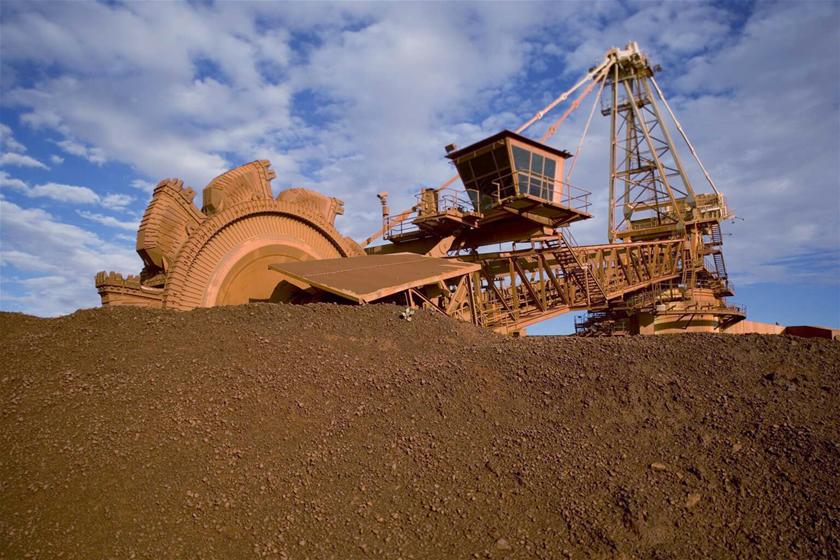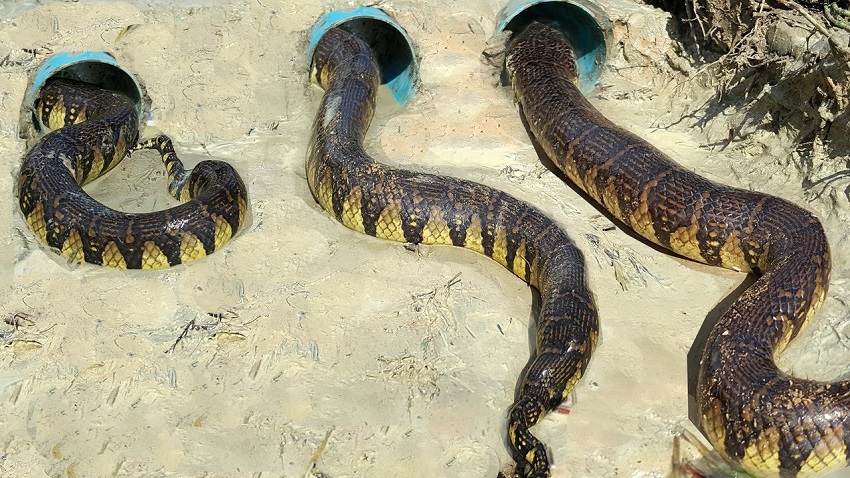
Despite the troubles, economic situation and insurgency in Nigeria, the country is still blessed with an abundance of nature – food, trees, traditions and cultures, and even mineral resources. Years after years, more and more of these natural gifts continue to be discovered and used in the country.
Found in many nook and crannies of different States of the country, solid minerals have been explored and have been generating income to the country. Following its discovery, mining of solid minerals in Nigeria started around 1903 and it’s still in vogue.
Amidst the vast amount of minerals found in Nigeria, studies have shown a stunted growth in the mining sector of the country. Also, a large percentage of the blessing have not been properly used, managed or even explored.
Solid mineral is part of the many abundant gifts of God to Nigeria. Several states of the country have different solid minerals in a unique way for unique purposes. These minerals include:
Coal
A mixture of sedimentary rock and ancient vegetation changed over time due to heat and microbial activities becomes what is known as coal. One of many solid minerals found in Nigeria, coal was first discovered in the country in 1909 in Enugu by a British mine Engineer, Albert Kitson.
In Nigeria, Coal is found in Enugu, Anambra, Benue, and Kogi, etc. the Nigerian Coal is used as energy fuel and raw material for the metallurgical and chemistry industry.
Lead/Zinc
With a significant amount of this solid mineral, it is used in construction, nuclear shielding, television tubes, a chemical compound in rubber and paint. Other uss include cable wrapping, electrical fuses, dry-cell batteries, etc. it is found in about eight States of the country with several millions of tons.
Iron Ore

Nigeria has several deposits of iron ore which can be found in Kogi, Niger, Enugu and the Federal Capital Territory. It is said that the purest and largest amount of this mineral is found in Kogi State which also has a mining company.
The iron ore is used to produce iron which in turn is used to produce steel. Steel is used to make many items such as: paper clips, automobiles, furniture, ships, etc.
Bentonite and Baryte
This is mostly found in Borno, Edo and Taraba States. This mineral is used in the processing of oil products amongst others.
Rock Salt
There’s a massive amount of salt in Nigeria. It is said that the country has a total reserve of about 1.5 million tons in Ebonyi, Benue and Plateau states.
Bitumen
This solid mineral is one of the abundances in Nigeria and can be found in Edo, Ogun, Ondo and Kaduna States. For engineering works and material constructions, this mineral has proven to be very useful. When metal cutting seems difficult, the use of this mineral is often used for the work.
Talc
the identification of Talc in Nigeria has added to the several minerals in the country and about 40 million tons have been identified in different states of the country which include; Kogi, Ogun Kaduna, and Osun States. Also, this mineral is used for a lot of industrial works like many minerals.
Gypsum
The production of classroom chalks, Plaster of Paris, and cement is possible because of the availability of this mineral. To sustain the companies that produce the above-mentioned products, gypsum has to be mined. Nigeria has proven to have deposits of several tons of gypsum in many States of the country.
Clay (Kaolin)
For pottery, brick, cement and ceramic productions, the Nigerian Clay have been quite useful. It is found in different States of the country. For various body masks, clay has been used in a quite number of ways Nigerian clay can actually be found in a number of Nigerian states, almost in every part of Nigeria. It is mostly found in Ogun, Ondo, Edo states among others.
Gemstones
The usually wanted gemstones are prove of many of the several blessings of God in Nigeria. Plateau, Kaduna and Bauchi States are the various parts of the country that have deposits of these gemstones. They include; emerald, gold, aquamarine, sapphire, ruby, and tourmaline among others.
Diatomite
This mineral is often used in the food industry to filtrate drinks. Also, it is used to filter different chemicals and paints.
Columbite and Tantalite
Solid Minerals in Nigeria
It is spread across Plateau, Bauchi, Nassarawa, Cross-River, and Kwara among others. Across Africa Columbite and Tantalite are collectively known as coltan and are used in electronic manufacturing companies.
There are several other minerals in Nigeria which are mentioned in this article. However, as much as the mentioned solid minerals are important and unique, so are the other ones that have not been mentioned.
Despite the good number of solid mineral deposits found in Nigeria, many have not really been excavated by the government. Since oil was discovered, Nigeria has forgotten many of the above mentioned solid minerals since it is the major foreign exchange earner in the country and its demand in the international market is good. However, if mined as much as it should and sold out, the country will definitely make a good income out of the abundance of these minerals. It is alleged that Nigeria’s gemstones happen to be some of the best in the world. If this is true, the mining sector of the country should have a rethink about the exploration of these precious stones.
The mining companies in Nigeria have not been exploring as they should thereby giving illegal miners to mine, make money and not still pay the tax out of it.
See Also: CATFISH FARMING IN NIGERIA: HOW TO START (BONUS GUIDE)
However, there’s a quest by many for these solid minerals to be excavated as much as possible in order to diversify the economy of the nation but several ecological factors have been proven as a result of mining in some parts of the country where mining has been done severally. Environmental officials have proven that a number of States are in health risks as a result of mining. Plateau State where tin and columbite were heavily mined and are still mined is one of the States that suffers ecological problems. Serious erosion and health risks happen to be the foremost of the problems faced by communities who have mined or are still mining. Also, most lands that solid minerals have been explored from cannot be used for development.














